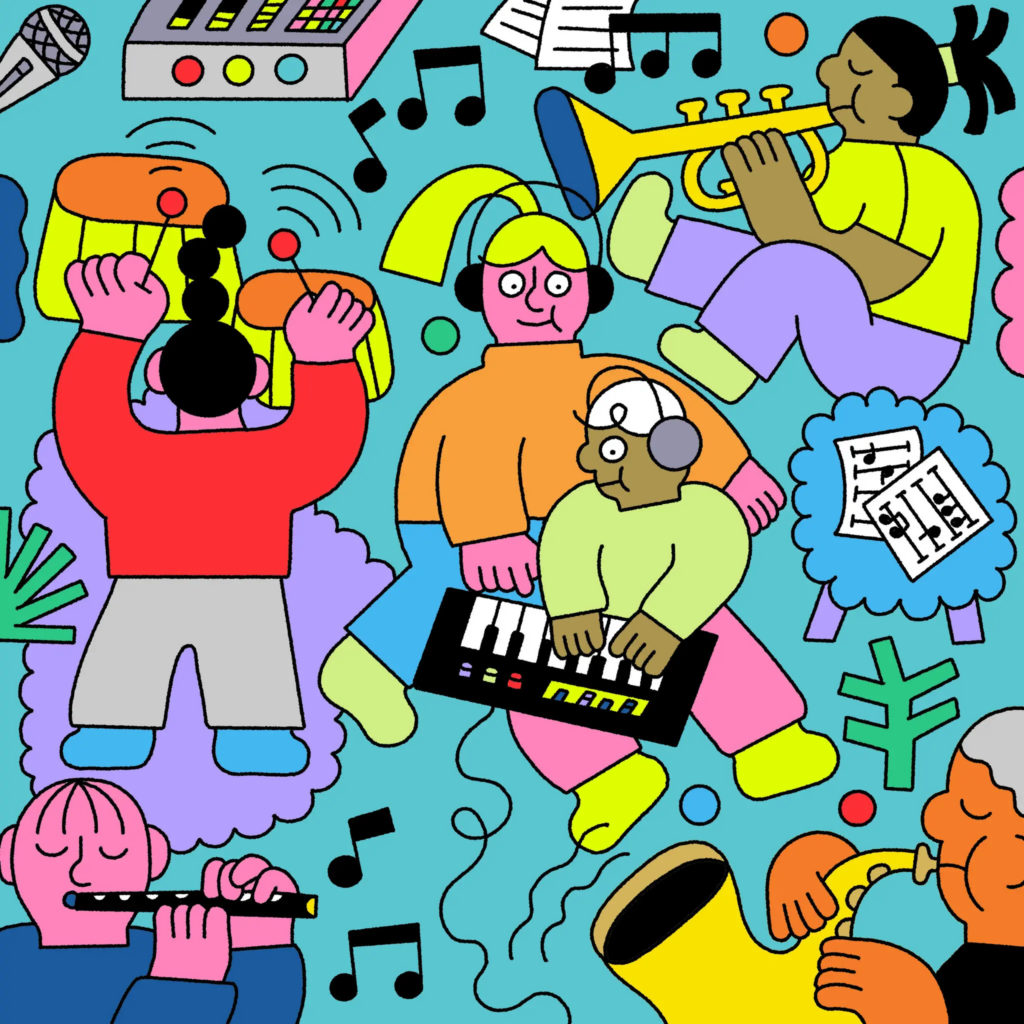In this fourth blog post, I will use the opportunity to reflect around my chosen topic and contemplate recent discoveries. I recently came across a student opinion article in The New York Times, and it made me think about the importance of good music education and how to measure it.
The article is based on a guest essay from Sammy Miller, a Grammy-nominated drummer and founder of a music education company. He states that “We’re Teaching Music to Kids All Wrong”, which results in children losing their excitement and enthusiasm for music. He mentions several different advantages children could get if they stick to music, such as being better in math and physics and getting a higher level of conscientiousness. Nevertheless, lack of interest results in plenty early ended music careers. He is wondering why parents and educators are not better at encouraging children to continue, because they never seem to be expressly thankful to have quit music at an early age. In his guest essay, I want to point out this paragraph:
In my 15 years as a musical educator, talking to countless teachers, I’ve learned one thing: There is no magical fix. Making music education more successful doesn’t need to involve expensive digital accessories or fancy educational platforms (and I say that as someone who developed an online educational platform). There’s no technological or financial program that will convert children into lifelong music lovers.
Even though he has participated in the development of the online music educational platform Playbook, he states that it would not have the capability to convert children into lifelong music lovers. He continues writing that it is necessary to rethink how we teach music from the ground up, and emphasizes the fact that children should be allowed to play around. According to Miller, we should encourage children to be terrible. Many children associate music with a difficult undertaking they cannot hope to master, which in the end leads them to giving up. It should not be like that. They should be thought the usefulness of failure.

Kanioko
Now back to the student opinion article written by Jeremy Engle. The reason why he writes about Millers guest essay, is because he wants to research out if his statements are based on true stories. He asks students: Do we really need better music education? He wants to find out if students agree with the statement that we are teaching music the wrong way. He lists 6 questions related to the topic, and students 13 and older in the United States and Britain, and 16 and older elsewhere, are invited to comment.
After reading the comments, I truly understood the frustrations and difficulties children goes through while learning new instruments. The article now has 153 comments and as far as I can see, all the commenters agree with Millers statements. They write about how it is to be forced to learning new instruments, and how challenging it is to face strict, perfectionist music teachers. Many of the students commenting ended up quitting music themselves because of low feeling of mastery, which they subsequently find sad.
I think the numerous advantages of music may disappear if the performer ceases to find joy in the experience. The children need to find their own motivation, and the job of the teacher is to develop it further. Strict rules and perfectionist goals do not contribute.
I also want to highlight Millers statement about online educational platforms. Personally, I learned to play the trumpet and piano in a traditional way. Even though it was hard to concentrate at times and I truly relate to some of the students’ comments, I also enjoyed the analog format. Throughout my youth, I used music to escape from everyday life and the digital society in general. After staring into my computer and mobile device for hours, the fifteen minutes I spent in front of the piano was used to completely disconnect from digital platforms. It might be a bias while researching this topic, but I find it hard to believe that a digital educational platform really could displace the feeling of escape from analog sheet music.
Some valuable thoughts and reflections entered my head after reading this article and the attached comments. I do not know what I will end up doing in this project, but now I know that it is important for me to research the possibility to make something fun and playful, preferably in an analog format.
Reference
Engle, J. (2023, September 29). Do We Need Better Music Education?. The New York Times. Retrieved from https://www.nytimes.com/2023/09/29/learning/do-we-need-better-music-education.html